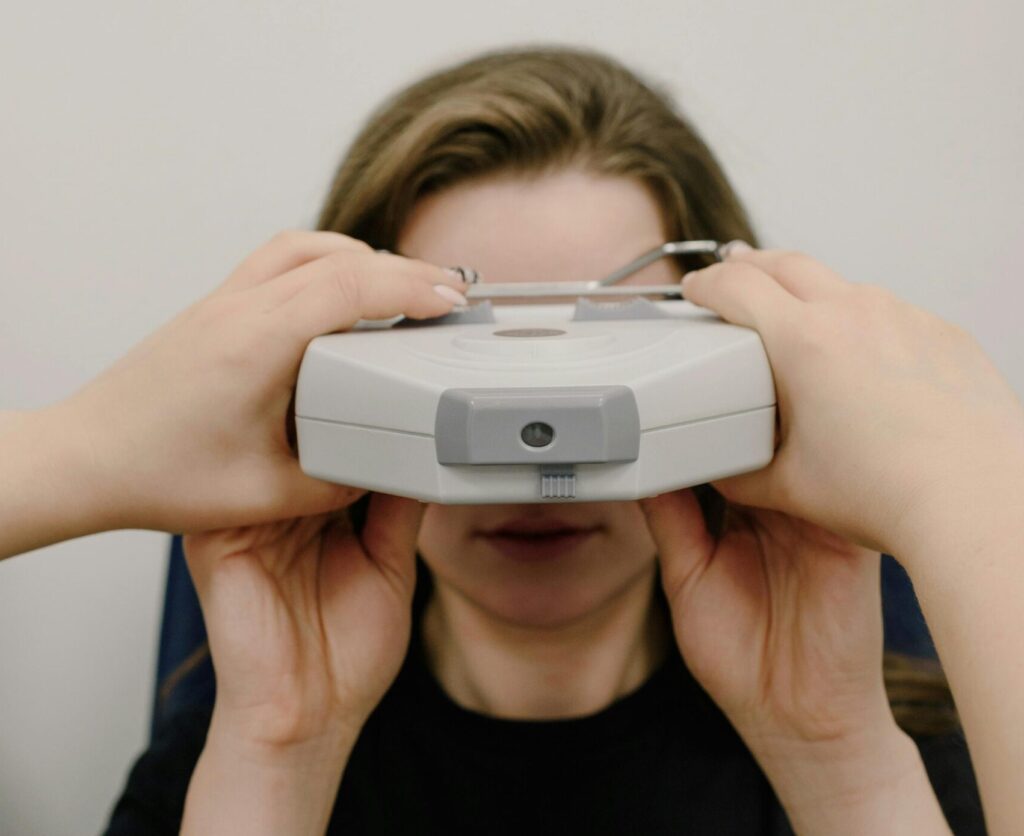When it comes to eye health, misinformation is widespread. Many people believe in myths about vision care, leading to improper habits or unnecessary fears. At Thind Eye Hospital, the best eye hospital in Jalandhar, we prioritize educating our patients with accurate information. This article will debunk 10 common eye health myths and provide expert-backed guidance on protecting your vision.

Myth #1: Eating Carrots Will Fix Your Vision
Truth:
Carrots contain vitamin A, an essential nutrient for eye health, but they won’t correct vision problems like nearsightedness or astigmatism. While vitamin A is necessary for good eyesight, consuming a diet rich in leafy greens, fish, nuts, and citrus fruits is far more beneficial for long-term eye health.
Better Alternatives:
- Leafy greens (spinach, kale) – Packed with lutein and zeaxanthin, essential for preventing age-related vision problems.
- Fatty fish (salmon, tuna) – Contains omega-3 fatty acids, which help combat dry eye syndrome.
Myth #2: Wearing Glasses Weakens Your Eyes
Truth:
Many people believe that wearing glasses makes their eyes dependent on them or weakens their eyesight over time. This is not true. Glasses do not affect your eye muscles—they simply correct your vision.
In fact, not wearing the right prescription glasses can cause:
- Eye strain
- Headaches
- Blurred vision
If you experience any of these symptoms, visit Thind Eye Hospital for a vision screening to get the correct prescription.
Myth #3: Reading in Dim Light Will Damage Your Eyes
Truth:
While reading in low light may cause temporary discomfort, it does not cause permanent damage. However, it can lead to eye fatigue and strain.
Best Practice: Always use adequate lighting while reading to reduce strain and discomfort.
Myth #4: Contact Lenses Can Get Lost Behind Your Eye
Truth:
This is impossible due to the conjunctiva, a thin membrane that covers the white part of the eye and prevents anything from slipping behind it. However, improper handling of contact lenses can lead to eye infections.
Tip: Always wash your hands before handling lenses and store them properly. Visit Thind Eye Hospital’s ophthalmology clinic for a contact lens consultation.
Myth #5: Eye Exercises Can Eliminate the Need for Glasses
Truth:
Eye exercises may help reduce eye strain, but they cannot correct refractive errors like nearsightedness, farsightedness, or astigmatism. If you need glasses, no amount of exercise will replace them.
What Helps? Regular eye exams and prescription glasses or contact lenses.
Myth #6: Sitting Too Close to the TV Will Ruin Your Eyes
Truth:
Sitting too close to the television or staring at screens for long periods won’t cause permanent damage but can lead to temporary eye strain and discomfort.
Best Practices for Screen Use:
- Follow the 20-20-20 rule – every 20 minutes, look at something 20 feet away for 20 seconds.
- Use blue light filters on screens.
If your child sits too close to the TV regularly, it might indicate nearsightedness. Schedule an eye exam at Thind Eye Hospital to check their vision.
Myth #7: You Only Need an Eye Exam If You Have Vision Problems
Truth:
Many serious eye diseases like glaucoma, diabetic retinopathy, and macular degeneration develop silently, showing no symptoms in their early stages. By the time vision issues appear, the condition may have already progressed significantly.
How Often Should You Get an Eye Exam?
- Children & Teens: Once a year
- Adults (18-40): Every two years
- Adults 40+: Every 1-2 years (or more frequently if you have risk factors like diabetes)
Myth #8: Sunglasses Are Only for Sunny Days
Truth:
UV rays are present year-round, even on cloudy days. Prolonged exposure to UV light increases the risk of cataracts, macular degeneration, and corneal damage.
Solution: Always wear UV-blocking sunglasses, even in winter. Visit the best optical store in Jalandhar for high-quality eye protection glasses.
Myth #9: Eye Drops Can Replace Glasses
Truth:
Eye drops help with dryness, redness, and allergies, but they cannot correct refractive errors. If you have blurry vision, only glasses, contact lenses, or corrective procedures will help.
Myth #10: Rubbing Your Eyes Is Harmless
Truth:
Rubbing your eyes spreads bacteria, increases the risk of infections, and can even cause corneal damage. If your eyes feel irritated, use lubricating eye drops instead.
Better Alternatives:
- Blink frequently to refresh your eyes
- Use a cool compress for irritation
Protect Your Vision with Expert Eye Care at Thind Eye Hospital
At Thind Eye Hospital, we are committed to providing expert eye care services based on science and medical expertise. Whether you need:
- Routine eye check-ups
- Contact lens consultation
- Cataract surgery
- Squint correction surgery
- Emergency eye care in Jalandhar
Our specialists are here to help you maintain a healthy vision for life.
Click Here to Book Your Appointment Today!
Don’t let myths put your vision at risk—trust the experts at Thind Eye Hospital!


